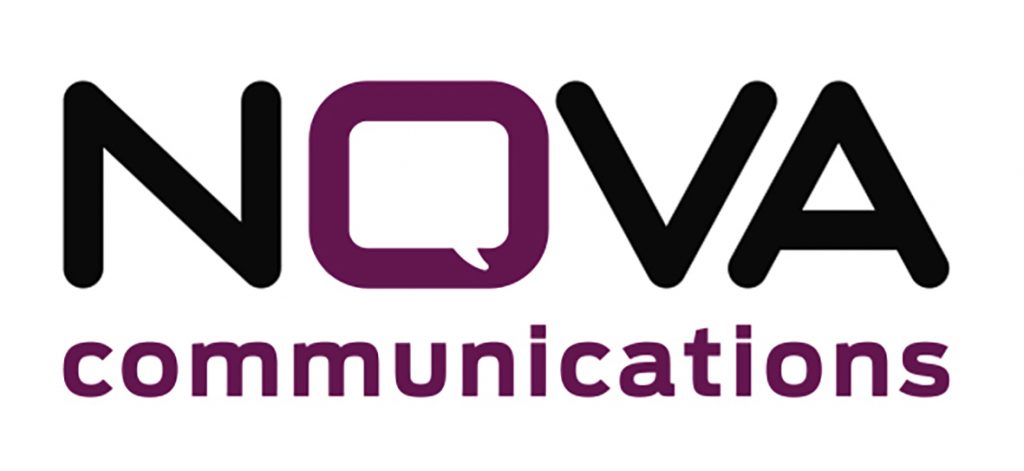I can tell from my experience that we need to return to the culture of communication, the essence of the content we exchange, the accuracy of the information, relevance and reputation of participants in communication, and the facts that are communicated, thus raising the value of true information and fostering openness.
Jasmina Stojanov has been in the communications business for over 30 years. A long-time radio and news agency reporter, she started her career back in the 1990s at Radio Pančevo. She worked in political marketing for eight years while being employed by the office of former Serbian President Boris Tadić. Since she became the head of Nova Communications agency, she has been mainly involved in corporate marketing.

We talked with the owner and Managing Director of Nova Communications, about the essence and the meaning of communications, the challenges she faces daily and the current market challenges. “If you are asking me what are the secret communication formulas in our agency, the answer to that question could be summed up in four words – professionalism, trust, commitment and reliability,” Ms Stojanov says.
You have vast experience in the field of communication. In your opinion, what is the most important thing in the communications sector today?
We need to restore the meaning and importance of communications. We are living in an era of galloping development of digital connectivity. At the same time, this progress is accompanied by challenges related to preserving the basic communication values – from how we communicate with each other to the broadest forms of professional, social and business spheres in public life. I can tell from my experience that we need to return to the culture of communication, the essence of the content we exchange, the accuracy of the information, relevance and reputation of participants in communication, and the facts that are communicated, thus raising the value of true information and fostering openness. To be clear, we are watching a game in which lies more often beat the truth, and prosiness beats the essence.
“The trend will be the personalization of content for different groups of consumers and developing a personal relationship between buyer and seller through marketing”
In both the public and private sector, we should work on greater structuring of communications – namely, on planning, analyzing, fostering better relations with the public and the media, strategic thinking and lobbying. Response, especially in crises, should be characterized by greater openness, accessibility, and above all timeliness. Due to haste or procedural stiffness, I often notice that subjects refute themselves in times of crisis communication. There is also the logic of “nobody remembers what happened yesterday”.
What were the biggest challenges that your agency had to overcome during this pandemic-induced crisis period?
The biggest challenges we faced in the year of crisis have been maintaining the stability of the company’s operations, on the one hand, and supporting our clients and their campaigns, on the other.
We have tried to ensure that all our clients receive maximum support from us relating to their needs and business trends. Furthermore, and regardless of the circumstances, we continued to work on attracting new clients, who in turn, have recognized our commitment and ability to achieve the best results on the market with the best possible conditions, taking care of every cent that our clients spend on campaigns.
The media market and the communications sector have undergone significant changes. What are the most important market trends at the moment?
New technologies have already opened the door of the future to us, which will shape both marketing and communications. The biggest challenge is the accelerated development of the digital sphere, whereby new marketing and communication trends will emerge that will follow in the footsteps of the development of artificial intelligence.

As for television, it is not “an old lady” and I think they wrote it off too soon. The entire digital and television sphere will prove to be the strongest platforms. The trend will be the personalization of content for different groups of consumers and developing a personal relationship between buyer and seller through marketing.
How to communicate with clients and run their campaigns in the so-called ‘new normal’ today?
The client’s trust is the most important thing. The crisis is rapidly distinguishing between “professionals” and “passers-by” in the marketing business. The first reaction of companies is to fear for their business and want to cut costs. Budget control poses a danger that can lead to bad decisions which, in turn, can result in greater losses. And in this recklessness and haste, marketing is the first to suffer. If you reduce your advertising budget or stop advertising altogether, as Henry Ford said, “those who stop marketing to save money are like those who stop a clock to save time”.
“The most important thing for us is that our client has a solid trust in us and that they get the best value for their money”
Good and accurate marketing is guaranteed to be profitable and it goes against the cost-reducing decisions that companies make. It is vital for agencies to play a role in this, and that they encourage the client because they trust the agency and see it as a reliable collaborator that ensures security and confidence in the well-being. We adjusted the campaigns, content and dynamics and made projections together. We have strengthened our mutual relationship by preserving the business and a successful perspective from fear and losses.
How important is it for the client to give the agency free rein, so to speak, to create a strategy and how important is mutual trust?
 Focusing on the client, creating a relationship with the client with an emphasis on quality and results, successful sales of new business opportunities with the use of new tools, market-oriented campaign management and having a good understanding of the business environment – all of the aforementioned goes into creating a strategy for the client. The most important thing for us is that our client has a solid trust in us in terms of their vision of when and how and where the advertisement should be placed, as well as that they agree to change when we, as experts with experience in monitoring of market trends, tell them where and when that will be most visible and to identify the best target groups for the campaign. My client needs to get the best value for their money.
Focusing on the client, creating a relationship with the client with an emphasis on quality and results, successful sales of new business opportunities with the use of new tools, market-oriented campaign management and having a good understanding of the business environment – all of the aforementioned goes into creating a strategy for the client. The most important thing for us is that our client has a solid trust in us in terms of their vision of when and how and where the advertisement should be placed, as well as that they agree to change when we, as experts with experience in monitoring of market trends, tell them where and when that will be most visible and to identify the best target groups for the campaign. My client needs to get the best value for their money.